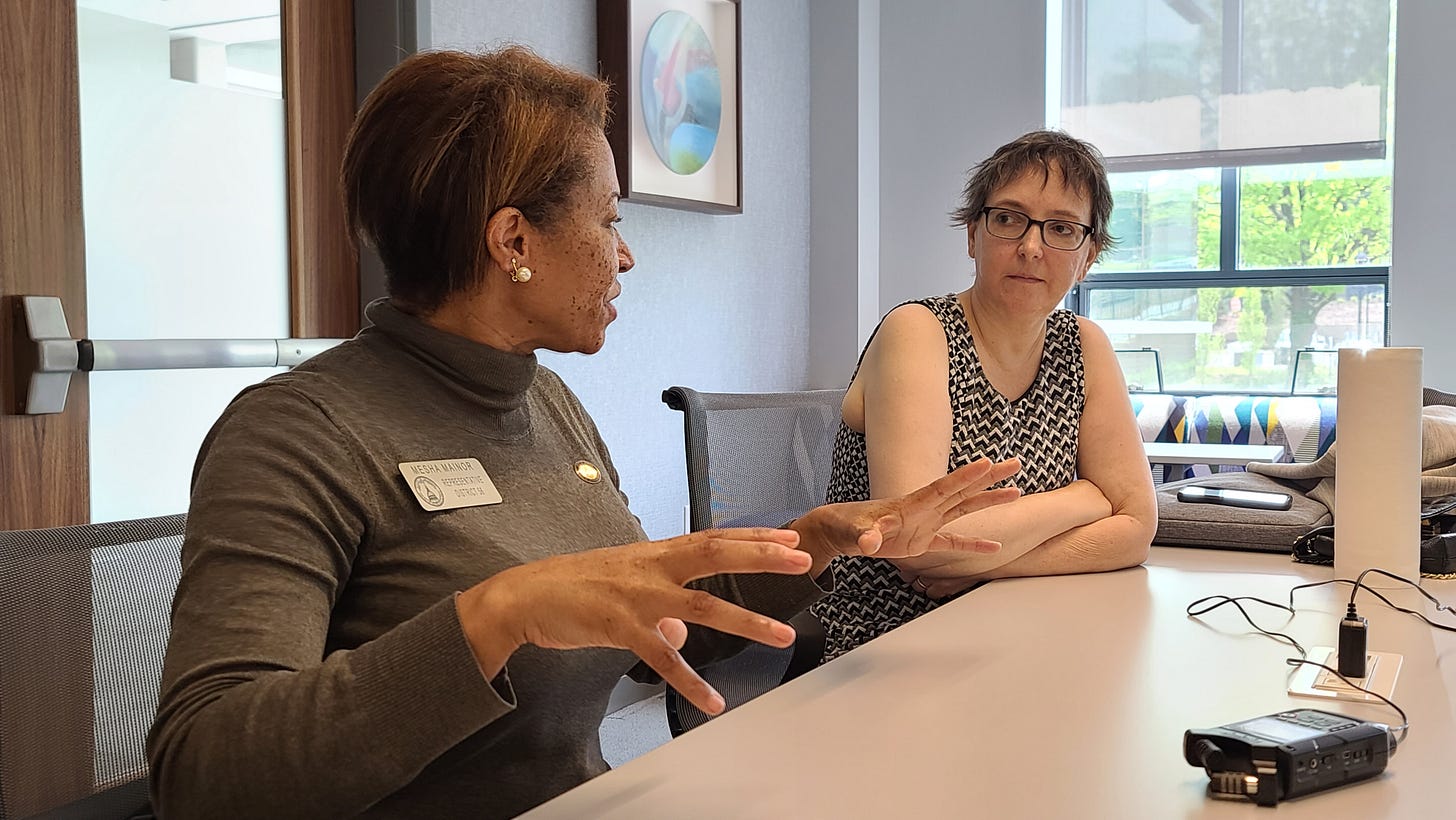Bipartisan: Mesha Mainor
This is the first in the Bipartisan series, looking at how cross party politics works ... and doesn't ... in Georgia.
Last month, Tennessee legislators tried and failed to throw two Democrats out of their seats after floor protests for gun control crossed an invisible line. Montana State Rep. Zooey Zephyr, a transgender state lawmaker, found herself working from the hallways and cafeteria of the state house after Republicans barred her from the House floor for criticiz…
Keep reading with a 7-day free trial
Subscribe to The Atlanta Objective with George Chidi to keep reading this post and get 7 days of free access to the full post archives.




